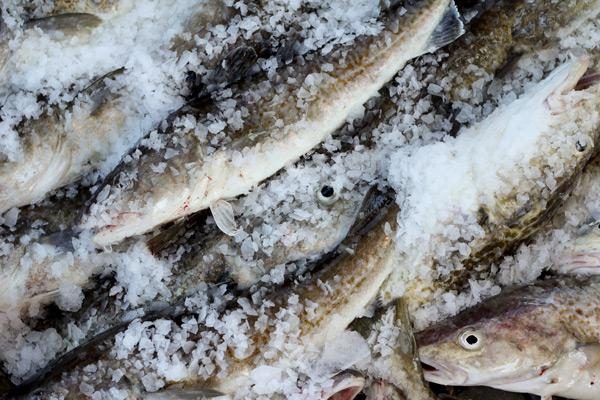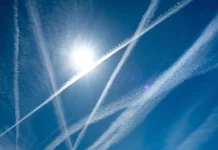In an unprecedented response to historically low numbers of Pacific cod, the federal cod fishery in the Gulf of Alaska is closing for the 2020 season.
It’s a decision that came as little surprise (Fukushima?), but it’s the first time the fishery has closed due to concerns of low stock.

“We’re on the knife’s edge of this over-fished status,” North Pacific Fisheries Management Council member Nicole Kimball said during talks in Anchorage Friday afternoon.
Warming ocean temperatures are wreaking havoc on a number of Alaska’s fisheries, worrying biologists, locals and fishermen with low returns that jeopardize fishing livelihoods.
A stock assessment this fall put Gulf cod populations at a historic low, with “next to no” new eggs, according to NOAA research biologist Steve Barbeaux, who authored the report.
At their current numbers, cod are below the federal threshold that protects them as a food source for endangered Steller sea lions. Once below that line, the total allowable catch goes to zero — in other words, the fishery shuts down.
After the report was released, the stock assessment still had to pass through the NPFMC for review. The council unanimously passed the final decision to close the fishery Friday in Anchorage.
Is the Blob Responsible for Low Stock of Cod in the Gulf Of Alaska?
Up until the emergence of a marine heatwave known as “the blob” in 2014, Gulf cod was doing well. But the heat wave caused ocean temperatures to rise 4-5 degrees. Young cod started dying off, scientists said.
“A lot of the impact on the population was due to that first heat wave that we haven’t recovered from,” Barbeaux said during an interview last month.
Following the first heat wave, cod numbers crashed by more than half, from 113,830 metric tons in 2014 to 46,080 metric tons in 2017.
The decline was steady from there.
“Retrospectively, we probably should have shut the fishery down last year [too],” Barbeaux said.
Signs of Another Warming Event
Cod only enter the fishery at age three, so the environmental effects on the fishery are somewhat delayed. There are now signs of a second warming event. Scientists like Barbeaux and say it’s hard to predict what the future of the fishery will look like.
“We’re just well beyond what we’ve ever seen before. It’s this very unusual, warm event,” said Mike Litzow, a NOAA fisheries ecologist based in Kodiak. “What the climate scientists are showing us, our best understanding is that this is going to be the new average within a short time frame.”
Uncertainty Looming Among Cod Fishermen in Alaska
With uncertainty looming, Gulf cod fishermen in Kodiak are struggling with a decline of what used to be a major part of the island’s winter economy.
Many fishermen have already moved on from cod. For the few remaining, the federal fishery closure further jeopardizes their livelihoods.
State cod fishery limits for 2020 have yet to be set.
“It’s kind of devastating,” Kodiak-based pot cod fisherman Frank Miles said last month, hoping at the time that the situation would turn around for next year’s season.
Before the first heat wave, Miles said about 70 percent of his income came from cod fishing. Since then he’s worked to diversify, but he’s still concerned for the future.
“I’m more worried about my son and his generation, the younger guys coming up,” he said. “I’m 60, I’m probably just about done. I’d like to think that I could fish cod one more time before I retire, but I don’t know. I simply don’t know where we’re going here.”
This is dramatic, for the fishermen and for all other cod and fish consumers. By devastating our environment, we are also devastating parts of our agro-alimentary economy… And we are all going to pay for that. [Alaska Public]
Keep reading this blog for other major shifts coming or also visit Steve Quayle and his interesting headlines. If you liked what we offer:













So sickening to lean on the false Global Warming broken crutch. All the comments acclaim and correctly so: FUKUSHIMA is the real root cause of the cod decline as well as all the other species of fish in the Pacific Ocean
It doesn’t matter if a million people proclaim the LIE of GLOBAL WARMING as an excuse for everthing that goes wrong on the planet. it is still a BIG LIE.
I know… it’s everything but Fukushima!
Hello in March 2011 a 9.0 magnitude earthquake hit off Fukushima Japan. This resulted in 50 foot tsunami hitting nuclear plants shutting off backup generators. Several of Nuclear plants exploded and radiation was poured into Pacific Ocean. It took several years for radiation to reach west coast of North America and killed off marine oceans animals.
Global Warming BS. It’s called fukushima! Which is still continually dumping millions of tons of radioactive water into the ocean.
Fukashema Fukashema Fukashema but what if it’s something else?
FUKI!!!